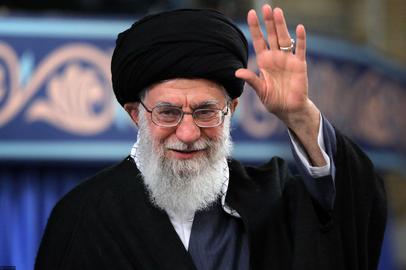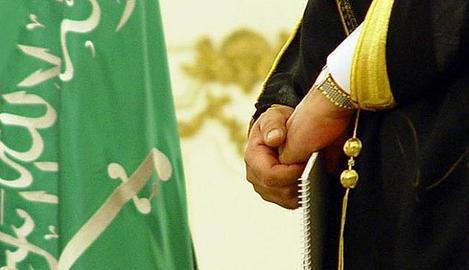“We need to work more on justice. We must apologize to the people and to God for these shortcomings.”
These were the rather unexpected words of Iranian Supreme Leader Ayatollah Khamenei during a speech he delivered on Sunday, February 18. They have special significance if one remembers that, during the recent protests, more than anything else, protesters voiced their anger about the lack of justice in government policies — and toward Ayatollah Khamenei himself.
Now compare this speech with one Khamenei delivered on February 8 [Persian link] in response to protests. In that speech, he praised the people who “created the epic” of February 11, the day in 1979 when the monarchy was toppled. “Who are the people?” he asked rhetorically. “The people are those who turn their backs on troublemakers when they come out, the moment that they hear the mischief-makers’ slogans — even if they themselves have grievances.” And then he warned: “Do not misunderstand the people.”
During the speech on Sunday, February 18, Ayatollah Khamenei praised “the self-sacrifice of the people” who realized the Islamic and revolutionary system. But he took on a different tone when he said: “We have problems in the realm of justice...we must apologize to the people and to God for these shortcomings."
In the past, he has implicitly apologized for various problems, but this time, he did not equivocate. He appeared to be speaking more directly, and to acknowledge that the injustice people had endured should be reversed.
However, to understand this admission better, it’s useful to look back at another apology from the past. On May 30 and 31, 1992, poverty-stricken people gathered near the seminary of the holy city of Mashhad, rising in protest, protest that soon engulfed the whole city. Revolutionary Guards were deployed in their masses to suppress the protests. Then, not long after, on June 11, during a meeting with members of the parliament, Khamenei offered an apology to the people of Mashhad. “Unfortunately,” he said, “some in the media have presented the incorrect analyses. They have accused people. I must apologize to the people of Mashhad for some of this analyses.”
“Scum” of the Counter-Revolution
Although he appeared to apologize, he then offered his own analysis. He declared that the “scum” of the counter-revolution had used and guided “cut-throat” thugs and ruffians by offering them a “morsel” or promising them a “plunder” in order to create unrest and riots. The counter-revolution, he said, hid behind thugs to achieve its goals. He insisted that the forces of law and order must uproot these thugs “like weeds” and get rid of them.
Khamenei offered essentially the same analysis when discussing the recent nationwide protests. “The enemy is seeking an opportunity, a breach to step in,” he told the families of martyrs of the Iran-Iraq war on January 2 while the protests were still going on. “You have seen what has been happening in the past few days. All those who are hostile to the Islamic Republic...join hands to create problems for the Islamic system, the Islamic Republic and the Islamic Revolution.”
He described the protests as instances of mischief on behalf of the mercenaries of the enemies of the Islamic Republic, adding that “a certain wealthy Persian Gulf state” wants to “recycle the scum who have escaped Iran” by “savagery and sabotage against the Koran, against Islam and against the system of the Islamic Republic.”
“The scheming comes from the Americans and agents of the Zionist regime,” declared Khamenei. “The money comes from one of the filthy rich states around the Persian Gulf...and their errand boys are the murderous [People’s Mojahedin Organization]...The Americans and the agents of the Zionist regime have set up two command and control centers next to Iran to guide operations in cyberspace and guide the riots.”
“Miserable, Wretched, Stupid...”
He went on to describe the protesters as “miserable, deceived, wretched, disgraceful and stupid” and told Islamic Republic authorities: “If a fly sits on a wound then cure the wound. Do not let it fester.”
By comparing these two speeches it becomes clear that, between June 1992 and January 2018, Khamenei has not changed his views about protests in Iran. And as long as the leader of the Islamic Republic views such events as “conspiracies” by “enemies,” his apologies cannot be taken seriously or as a sign of impending changes.
So when assessing the recent protests, it is worth looking back at the 1992 protests in Mashhad. In 1992, the driving force behind the protests was a feeling of injustice. Twenty-five years later, it was again the victims of an unjust economic system in Mashhad who triggered a new wave of protests. What happened in 80 cities and towns across Iran in late December and early January was a bigger and more complex repeat of the same thing that started in Mashhad 25 years ago. So one should not expect that the Supreme Leader’s words of apology and his promises to solve people’s problems will mean anything in practice.
In 2001, Khamenei issued an eight-point order to fight economic corruption, but this also proved to be a worthless promise. Seventeen years on, this corruption was a key factor in nationwide unrest.
Khamenei’s record speaks for itself.
visit the accountability section
In this section of Iran Wire, you can contact the officials and launch your campaign for various problems


























comments